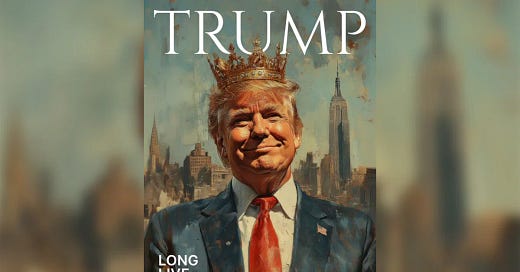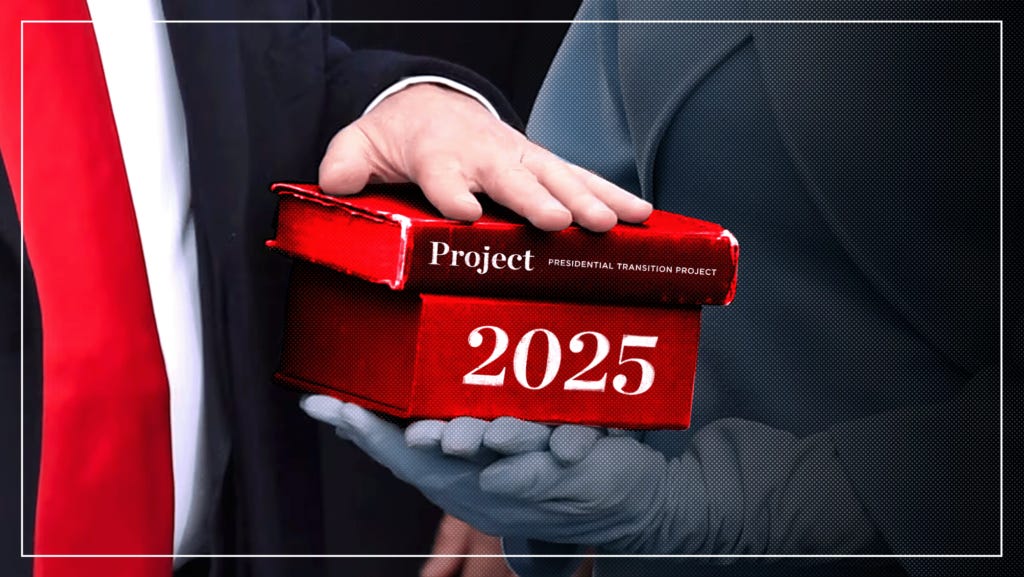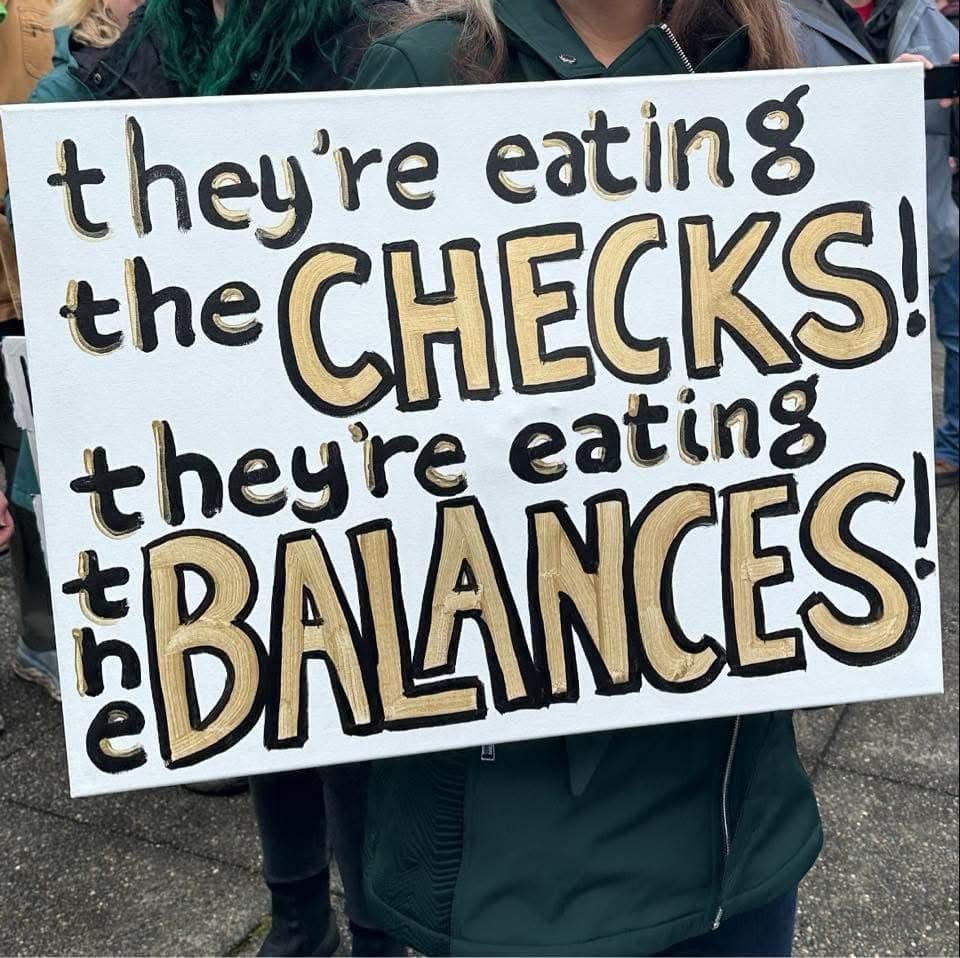What Am I So Worried About?
A response to my friends who are less concerned about the Trump administration
I concluded my book, Gun Curious: A Liberal Professor’s Surprising Journey Inside America’s Gun Culture, by observing:
Because so many gun spaces are traditionally occupied by conservatives, becoming a gun owner got me out of my blue bubble. I was not “red-pilled,” as some alt-right culture warriors might hope. When I became an armed American, I did not cease to be a liberal professor. I have, however, gotten to know many people who are demographically and culturally different from those I know best from my twenty-five years of full-time work as a sociologist. My journey inside American gun culture has allowed me to meet and befriend many people with whom I have little in common other than our citizenship and humanity. This is the most important lesson of all.
This lesson was brought home to me again recently when speaking with two friends I only know because I got into guns. One is a libertarian and the other is a Christian conservative. Both observed that my social media posting had taken on a somewhat fevered pitch since Donald Trump was sworn in as President of the United States and began acting at “muzzle velocity” to “flood the zone” with executive orders and actions.
Both also asked me variations of the question, What are you so worried about?
In this post, I try to answer that question for those two friends and interested others.
We Don’t All Have to Agree
Let me begin by saying clearly: We don’t all have to agree.
I have spent my entire career as a sociologist studying things about which we as fellow citizens of the United States disagree: multiculturalism in higher education; the role of religion in government, politics, and public life; and guns.
I disagree with those who think diversity and inclusion should not be guiding values of our colleges and universities.
I disagree with those who think abortion should be outlawed and Christianity should be taught in public schools.
I disagree with those who think certain semi-automatic rifles are weapons of war that have no business in civilian hands.
I disagree with all of those positions, but I understand why people of goodwill — my fellow citizens — hold those opinions.
As I say frequently when speaking about disagreements over guns:
Why would we expect everyone in a nation of nearly 350 million diverse people living on over 3.5 million square miles of land to all agree?
“Smaller Government”
Back to my two friends. They both favor “smaller government” — one because of his libertarian desire and one because of his traditional Christian conservative desire for freedom from government intrusion into their lives (what philosophers call “negative freedom”). Consequently, both are either pleased — or at least not bothered — by the actions being taken by the Trump administration to shrink the federal government.
As a center-left liberal, I view government regulation somewhat differently, but I do agree with my libertarian and traditional conservative friends that the national debt is out of control. The idea that financing the national debt will be one of the top five expense lines in the federal budget is disturbing. So, either more revenue needs to be generated or costs need to be cut, or ¿por qué no los dos?
So, I understand where my libertarian and traditional conservative friends are coming from. I understand much less well why they don’t understand why I would not be worried about how it is being done.
Concentration of Power and the Unitary Executive Theory
What I want them to understand about where I’m coming from is that I don’t think the means justify the ends in cutting the federal government. It is not just the fact that Donald Trump and his allies are profoundly altering the federal government, but how and why that matters most to me.
Here I won’t even elaborate on my concerns that the Trump administration is using DOGE to dismantle executive branch departments and independent agencies, like the Department of Education and USAID, in ways that will harm other human beings. And I will have much more to say about “DEI” in future posts.
(1) UNITARY EXECUTIVE THEORY. What is relevant to my concern here is that Donald Trump is not merely shrinking the federal government in the name of cost savings and efficiency. He and his Project 2025 muses are consolidating power in the executive branch utilizing the most radical application of Unitary Executive Theory yet attempted.
That worries me.
(2) CHALLENGING JUDICIAL AUTHORITY. As part of his consolidation of power, Trump challenges judicial authority, ignoring a judicial order and questioning the legitimacy of a judge’s decision by calling for his impeachment. You know it’s bad when Trump’s most significant judicial enabler, Supreme Court Chief Justice John Roberts, issues a statement saying “impeachment is not an appropriate response to disagreement concerning a judicial decision.”
That worries me.
(3) CHIEF JUSTICE JOHN ROBERTS AND RIGHT-WING SCOTUS. Of course, I can’t take any comfort in the Supreme Court of the United States checking Trump’s power grab, notwithstanding Roberts’ tepid statement about impeaching judges.
Roberts believes in the Unitary Executive Theory. This is evident in his opinion declaring, “The entire ‘executive Power’ belongs to the President alone” (Seila Law LLC v. Consumer Financial Protection Bureau [591 U.S. ___ 2020]). And in his opinion stating, “The President is the only person who alone composes a branch of government” (Trump v. Mazars USA, LLP [591 U.S. ___ 2020]).
In what has been called the President’s Favorite Decision, Roberts enabled the Unitary Executive monster when he wrote in the majority opinion in Trump v. United States (603 U.S. ___ 2024):
No matter the context, the President’s authority to act necessarily “stem[s] either from an act of Congress or from the Constitution itself.” Youngstown, 343 U. S., at 585. In the latter case, the President’s authority is sometimes “conclusive and preclusive.” Id., at 638 (Jackson, J., concurring). When the President exercises such authority, he may act even when the measures he takes are “incompatible with the expressed or implied will of Congress.” Id., at 637. The exclusive constitutional authority of the President “disabl[es] the Congress from acting upon the subject.” Id., at 637–638. And the courts have “no power to control [the President’s] discretion” when he acts pursuant to the powers invested exclusively in him by the Constitution. Marbury, 1 Cranch, at 166.
That worries me.
(4) CONGRESSIONAL UNWILLINGNESS AND INEPTITUDE. Nor can I take comfort in the U.S. Congress providing a check or a balance on Trump’s actions in those situations where Roberts’ decision allows it. Republicans in Congress support, explicitly or tacitly, Trump’s destruction of the federal government. Democrats in Congress have yet to deploy a strategy to stop it.
As many “Hands Off” rally signs last Saturday declared, “They’re eating the checks! They’re eating the balances!”
That worries me.
(5) LACK OF DUE PROCESS. Another major area of concern for me in relation to the consolidation of power is that Donald Trump is clearly uninterested in due process. I see this in the context of deportations, where he invokes the Alien Enemies Act of 1798, and sanctioning universities prior to the completion of investigations (see Columbia, Harvard, et al.). Both are authoritarian moves.
That worries me.
(6) EMERGENCY RULE. More generally, Trump’s use of emergency rule allows him to ignore due process and circumvent the ordinary checks and balances the Constitution establishes.
That worries me.
(7) ATTACK ON CIVIL SERVICE. As someone who supports public servants much more than my libertarian and traditional conservative friends do, I have due process questions about the firing of civil servants (cf. Civil Service Reform Act of 1978) and larger concerns around Trump’s politicization of the civil service with his “Schedule F” executive order reclassifying certain civil service positions as “at-will” (i.e., political) employees. Both consolidate power in the President.
That worries me.
(8) IMPERIAL PRESIDENCY BASED ON PATRIMONY. Despite his calls for meritocracy when he rails against “DEI,” Trump is actually substituting for the meritocratic civil service a form of patrimony in which, according to political scientist Stephen Hanson,
the ruler governs the entire state as if it were his personal possession, viewing the state as a kind of family business. He distributes parts of the state and its protection to loyalists, cronies, and even family members directly. At the same time, he attacks the impersonal and impartial administration of the state as an obstacle to his arbitrary power.
To wit: Trump appoints people whose main qualification for their jobs is how much they suck up to him — like Kash Patel, Dan Bognino, Pete Hegseth, Michael Waltz, et al. — as a way of consolidating his power.
That worries me.
(9) RETRIBUTION AND OTHER AUTHORITARIAN ATTACKS. Trump’s executive orders enacting retribution against specific individuals and law firms are also designed to consolidate power. Not to mention his leveraging federal funding to punish universities without due process. All of these attacks are designed, as authoritarians are wont to do, to instill fear and gain anticipatory obedience.
That worries me.
(10) THE BIG LIE AND UNDERMINING ELECTIONS. Finally, Trump continues to promote The Big Lie that the 2020 election was stolen, a lie that animated violent criminal actors to attack law enforcement and storm the capitol on January 6, 2021. (Relevant aside: He commuted the sentence of those criminals, including those convicted of violence against law enforcement.)
He continues to use the lie of stolen elections to roll back voting rights.
That worries me.
In Conclusion
I don’t think my libertarian or traditional conservative friends will share my worries, but I hope this meditation at least helps them understand what I and others are so worried about.
I welcome their — or anyone’s — efforts to assuage these concerns.
When Trump’s social media team declares “Long Live the King” or Trump himself pretends to joke about finding a way to serve a third term as president, his supporters laugh and say he is just trolling the libs.
But Trump’s consolidation of power is not laughable.
I used to think Trump was a blowhard clown, but his actions highlight that he is as serious as a cancer in terms of our Constitutional system that he is trying to reshape in his own image.
From where I stand, the threat of tyranny is real.
Someone call the NRA.








Thanks for laying out your concerns. No surprise, we disagree on many of them.
For those that haven't read Project 2025 here's a summary from, I believe, the other point of view which, I believe, balances the knee jerk reaction to ignore it outright.
https://egalitarianjackalope.wordpress.com/2024/11/22/i-read-project-2025-so-you-dont-have-to/
IMO Project 2025 is yet another bugaboo used to validate tribal affiliations. Nobody in the current administration is referencing it directly AFAIK (references appreciated). As such, I use it to flag impending Guilt by Association fallacies.
#1-3 are features not bugs. The Constitution and supporting documentation from the time, e.g. the Federalist Papers, are clear on these points. The executive is unique in our republic and the President, alone, is its leader.
The idea a rando federal judge in the corner of some rando state can tell the president what to do is non-functional. The founders created checks and balances. Not a system run by the heckler's veto.
Calling SCOTUS "right wing" implies a persecution mindset. As a gun owner join the club! Given the inconsistency of recent rulings nobody has any idea how a given case will shake out. That's not any kind of "wing."
#4 is definitely a problem! When was the last time we had an actual federal budget? Abdication of responsibility is the root of most human misery.
#5 agree. I was hoping for smarter implementations by Trump's cabinet picks. Alas, I'm also not surprised.
#7-9 are repeats of #1-3. Congress should not have abdicated their responsibilities for the last 60 years but here we are. The President is the executive and he now has a very large toolbox to test. Maybe this will finally wake up Congress.
#10 is not a lie. It is sad the propaganda around Jan 6th and the burning cities in 2020 will, it seems, never allow us to heal those wounds.
Good piece. Do you mind if I quote the section and patrimony and link to your piece on Medium? No problem if not.